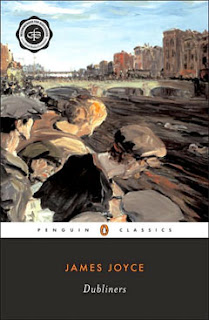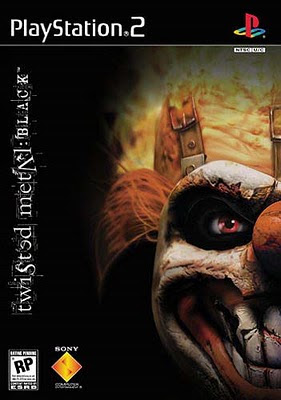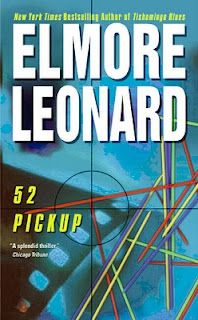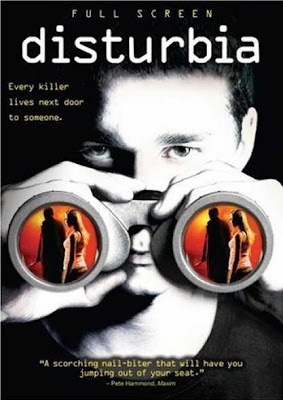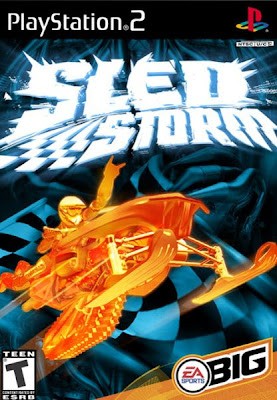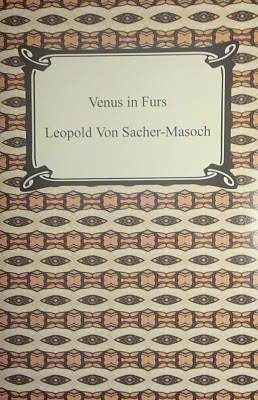
When I finished reading Carmilla, a book from 1872 that was supposed to be filled with lesbian vampire sex, I was extremely disappointed. In my post, I wrote that I was swearing off 1870s "erotica" forever. I lied. If Carmilla was a journey beyond my comfort zone, Venus in Furs was a trip to the moon. It is not only a book about a dominatrix/submissive relationship; it is the defining book about a dominatrix/submissive relationship. How defining? The author's name is the root for the English word "masochism." That defining. (Like I said, this was very much unlike anything I've ever read or dared to read.) As I'm sure you can imagine, the book defined by one word would be "kinky." But it was so much more. In this little novella, there was actually tons of character exposure and development, a great deal of gender role philosophy, and even a definite story which progressed at a pleasant pace. Since I'm pretty sure - nay, positive - that no one else out there is dying to read this, I'll summarize the plot with few fears of spoilers. A man named Severin meets a woman named Wanda and becomes immediately infatuated with her. She returns his affections and the two are happy together. Then one day, Severin proposes marriage. Wanda, a firm believer in the ancient Greek lifestyle of free love, insists that she cannot marry Severin. In turn, Severin - and here's where things start getting "alternate-themed" - insists that he must be with Wanda forever, and if he cannot be her husband, he has no choice but to be her slave. Wanda is plenty willing to go along with Severin's request, figuring he's just being romantic and over-the-top. She tries to play along, buying a whip and giving Severin a servant's uniform and allowing him to grovel and humiliate himself before her. But the issue here is that Severin's not playing. And while Wanda feels awkward whipping him (at first she apologizes after doing so, feeling immediately awkward and uncomfortable), Severin is very clearly enjoying himself and literally worshipping Wanda. All the while, Wanda begs him to reconsider the path they're headed down and warns Severin that she doesn't know what she's capable of doing to him. But he's on board and then some. As time wears on, Wanda begins to tire of Severin and begins to actually see him the way she treats him: as a lesser being. She begins to court other men. This, more than any physical act of cruelty she has put Severin through, tortures and eats away at him. The slippery slope continues and by the story's climax, we've come full circle; Wanda, tired of being idolized and worshiped, finds a man who she herself longs to serve and please. Severin is devastated and in a very perverse twist he ends up tied up and beaten half to death by Wanda's new man as Wanda simply looks on and laughs. Cold. The story's epilogue explains that some four or five years later, Severin is in control of himself and is living with a young female who he treats harshly in a domineering manner. Then there's some half-assed vague feminist message along the lines of, "Man is either master or slave to women - until the two are equal under law." Now for some reflection and analysis. First, I was impressed by how effectively Sacher-Masoch conveyed his characters and their emotions to me, quirks and all. Although they had a very complex and polarized relationship, I could actually identify with and relate to both Severin and Wanda. It's easy to look at Severin and think, "that pervert had it coming." It's easy to size up Wanda as nothing more than a twisted bitch. But each acted only in accordance with the agreement they had made with one another; finding fault with one but not the other is unfair and ignorant of the big picture. In spite of its unique spin, Venus in Furs was a love story. Ironically, Wanda ultimately confesses to Severin that she loved him enough to have actually made him her husband. But after months of treating him like a dog, she no longer saw him fit to be a real man in her life. Tragic, but understandable. Wanda could easily be seen as a femme fatale who toyed with Severin and drove him mad, but in her defense, he had explicitly requested, time and time again, to be mistreated. The fact that she did so on an emotional level and not just a physical one was something Severin was unprepared for in spite of all of Wanda's warnings earlier on in the story. Still, I really felt terrible for Severin during the book's climactic whipping scene. To debase himself in front of Wanda was one thing, but to be tortured and humiliated by the man that takes away the love of his life is quite another entirely. I wasn't quite clear on the ultimate moral of the story, so to speak. Was Sacher-Masoch a feminist calling for women's suffrage, or was he warning people about the dangers of reversing gender roles? Perhaps it was a mixture of both sentiments. Sacher-Masoch, after all, was a bit of a fetishist himself; it is not unreasonable to assume that he shared many of Severin's quirks but it is also clear that he could at least foresee the ruin and despair that a lifestyle like Severin's could ultimately lead to. I couldn't blame the guy for being at least a little bit confused. Regardless, I found Venus in Furs to be well-written and fascinating. It was a quick and easy read but it was also something that forced me to think about plenty of concepts (such as entire lifestyle choices) that I'd otherwise have ignored. I will now pat myself on the back for this courageous pick. May the month of May bring many more unexpected gems.

